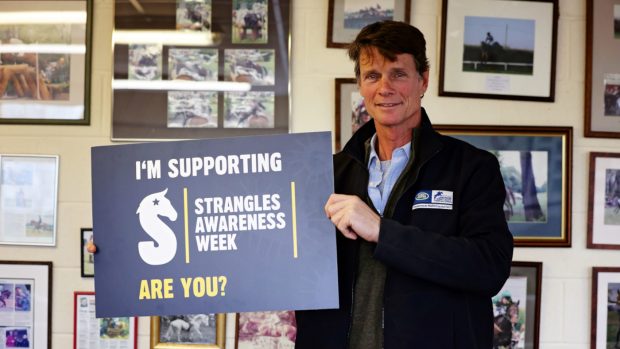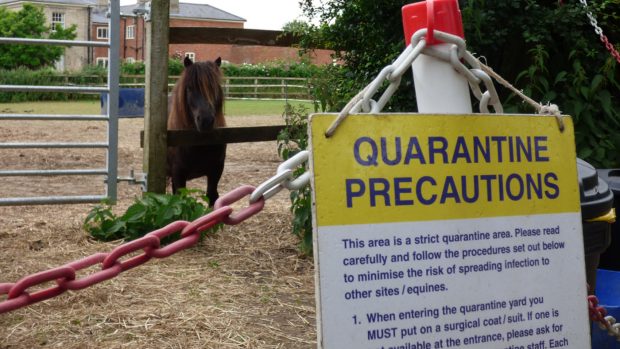Outbreaks of strangles have reeked havoc for equine events on the mainland and further afield this summer
Strangles has continued to hit the equestrian community this summer, with the renowned Marts pony sale, held annually at Lerwick in the Shetland Isles, the latest event to fall victim.
The sale was scheduled to take place in October but has already been cancelled because of a major outbreak of the respiratory disease on the island. In a normal year, more than 150 ponies would be sold for export at the auction.
Chairman of Shetland Marts Brian Hunter explained that he felt it would be irresponsible to go ahead with the sale and risk passing the disease on to equines on the mainland.Shetland Pony Studbook Society chairman Elaine Ward commented that the cancellation of the sale had potential equine welfare implications.
“Breeders are going to have to find somewhere to overwinter an extra 150 foals, which could be difficult,” she said. “But at the same time they do not want ponies with strangles leaving the island.”
Warwickshire College was also hit by an outbreak of the disease during the summer, causing the cancellation of the British Warmblood Society’s national show, although the mare grading was allowed to go ahead under strict isolation procedures.
Other Warwickshire venues were affected by an outbreak earlier in the yearand cluster of cases have also been reported in Lancashire, Yorkshire and Lincolnshire.
Horse & Hound veterinary consultant Karen Coumbe did not believe that this year’s strangles outbreaks were particularly severe, but commented: “Horse owners should be on the alert for the symptoms of strangles and must follow isolation procedures if a horse on their yard is thought to be infected. This includes staying away from shows.”
Symptoms of strangles include nasal discharge, ahigh temperature and swellings in the throat area. Transmission is mainly via direct contact, but good yard hygiene such as disinfecting buckets, troughs and tack can help prevent infection and, ideally, just one person should be responsible for the care of the affected horse or pony.
| Read the full story in this week’s Horse & Hound (12 September), or click here to subscribe and enjoy Horse & Hound delivered to your door every week. |
Click here to read about nursing a horse with strangles




